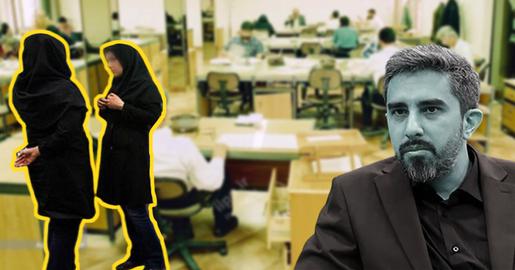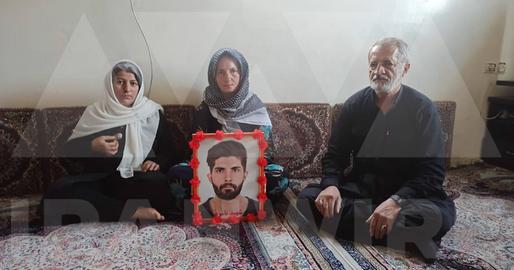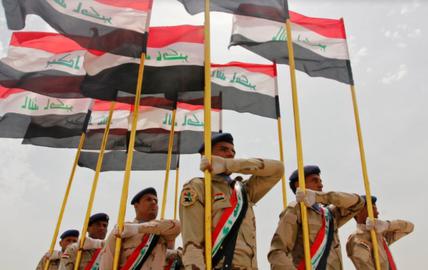
Hillary Clinton borrows the title of her memoir of her time as secretary of state (2009-2013) from Cyrus Vance, who occupied the same post under Jimmy Carter (1977-1980), and published Hard Choices: Critical Years in America’s Foreign Policy, which detailed America’s experience of the Iranian Revolution, in 1983. Lamentably, Clinton doesn’t mention Vance in her book, and although Iran plays a less vivid role in Clinton’s story than it did in his, Iranian traumas and perceived Iranian threats both inflect her narrative. But despite her choice of title, it’s not clear that Clinton has had to make hard choices about Iran—yet. Nevertheless, Iran influenced diverse areas of American foreign policy throughout her tenure.
The United States’ attempt to “reset” relations with Russia in 2009, following the low that attended the Russian invasion of Georgia in 2008, was necessary in part, she writes, to secure sanctions against Iran. Russian President Dmitri Medvedev surprised Clinton by admitting that Russia had underestimated Iran’s nuclear capabilities. Iran also played, and continues to play, a complicating role in U.S.-Russia debates over missile defense, with the Americans claiming that their plans for defense installations in Eastern Europe are directed at Iran and not Russia, and the Russians refusing to believe them.
Clinton’s account of the raid to kill Osama Bin Laden in 2011 describes her fear—and that of her Obama administration colleagues—that if the attack went wrong, it would turn into a disaster resembling Operation Eagle Claw, the failed U.S. hostage rescue in Iran in 1980, which left eight Americans dead following a helicopter crash near the city of Tabas.
Clinton’s Arab Spring accounts, too, raise the Iranian specter, with some nervous Arabs playing—perhaps cynically—to American memories of 1979. As the Mubarak regime in Egypt unraveled in early 2011, Egyptian Foreign Minister Ahmed Aboul Gheit warned her that Iran would take advantage of Egypt’s collapse (she doesn’t reveal the specifics), and emphasized his personal stake in events, protesting that if Islamists took control in Egypt, his granddaughters would grow up wearing the niqab. She was receptive. The Iranian Revolution did provide Clinton a model for thinking about revolutions in the Arab world. “Historically,” she writes,
transitions from dictatorship to democracy are fraught with challenges and can easily go terribly wrong. In Iran in 1979, for example, extremists hijacked the broad-based popular revolution against the Shah and established a brutal theocracy. If something similar happened in Egypt, it would be a catastrophe, for the people of Egypt as well as for Israeli and U.S. interests.
Sunni leaders in Bahrain and its neighbors, she notes, also saw “the hidden hand of Iran” in the mainly Shiite protests in Manama that year. “Given Iran’s track record,” she writes, “this was not an unreasonable fear. But it clouded their perceptions of the legitimate grievances of their people.”
Chapter 18 of Hard Choices is entitled Iran: Sanctions and Secrets, and juxtaposes the prospect of a diplomatic opening with Iran facilitated by Sultan Qaboos of Oman (who, as “a gracious leader who valued his relationship with the United States...and used his absolute power to modernize his country” will sound familiar to Iran-watchers) with Clinton’s rounds of sanctions coalition-seeking.
The chapter reads as the work of an aspiring president boasting a foreign policy triumph, in the form of “the strictest sanctions in history.” Clinton describes Iran as an untrustworthy fount of state terrorism pursuing a nuclear weapon and moving toward military dictatorship. She recalls telling Israeli Prime Minister Benjamin Netanyahu that “Iran’s ties to terrorism and the volatility of the region” meant that a nuclear-armed Iran was not “containable” like the Soviet Union. Diplomacy with Iran, she writes, was the U.S.’s best chance to avoid conflict or a nuclear-armed Iran. She has since expressed her “personal skepticism” about prospects of a nuclear deal, which suggests a hard choice ahead, one she presumably hopes to make herself.
Yet she writes of grave matters in an unreal tone, deploying both cliché and euphemism. To write of Middle East geopolitics as a “chessboard,” or to ponder the possibility of an Israeli strike to “knock out” Iranian nuclear facilities is to reveal moral and human distance from these subjects. To say that such an Israeli strike would be “like” the ones Israel carried out against Iraq in 1981 and Syria in 2007 is to show dreadful inattention to significant differences, first among them the likely humanitarian consequences. Nor are her moments of plain-spokenness encouraging: if Iran launched a nuclear attack on Israel, she said in 2008, “we would be able to totally obliterate them.”
Although Clinton justified those latter remarks by the principles of nuclear deterrence, and stood by them, Obama accused her at the time of “sabre rattling.” He also pointed out that she had previously remarked that people running for president shouldn’t engage in hypotheticals. Iran, as she notes in her book, filed a formal complaint at the United Nations. Ferhan Haq, a spokesperson for U.N. General Secretary Ban Ki Moon, reportedly said, “If she becomes president and she keeps saying that, then we'll have to react."

Despite Clinton’s claim that “all options really were on the table,” the threat of military action appears throughout her narrative mainly as a rhetorical device useful for convincing other states to back sanctions against Iran. “I warned that if diplomacy failed the result might be military action, which no one wanted to see,” she writes in recalling her appeal to Ugandan President Yoweri Musevani, whose country held a rotating seat on the United Nations Security Council in 2010. “We need to act in a quick and unified manner...if we are to avoid the growing risk of conflict in the region,” she told Chinese State Councilor Dai Bingguo, as she courted Chinese support for UN Security Council Resolution 1929, which imposed the aforementioned strictest sanctions in history.
Clinton does touch on the human side of Iran’s fate when she admits she took pride in the sanctions coalition she assembled, but no pleasure in the hardship Iranians suffered. She expresses regret over America’s rhetorical restraint during the Green Movement protests of 2009, which was based on the advice of unspecified contacts in Iran, and notes America’s subsequent technical and financial assistance to pro-democracy activists. Her chapter on human rights mentions Iran only briefly, in the context of remarks about religious persecution.
Yet she offers scant indication of where she expects this conflict of states, which is or ought to be complicated by human and humanitarian considerations, to lead. As she once said, “At some point there has to be a day of reckoning.” But she doesn’t expect much from diplomacy, and only deems the attempt “worth testing.” Even if the nuclear issue was settled, she writes, “Iran’s support for terrorism and its aggressive behavior in the region would remain a threat to the United States and our allies.” And for all her robust posturing, she has been known to make swift, unexpected policy U-turns, as when she told the BBC in 2010 that the U.S. might accept an Iranian uranium enrichment program, and thereby contradicted the wording U.N. Security Council resolutions on which international sanctions were based.
In a stale rhetorical sleight-of-hand that evokes George W. Bush’s “Axis of Evil” speech, she writes that it is Iran’s leaders who face “real choices about the future,” namely whether Iran would rather end up like North or South Korea.
This sense that hard choices can be postponed galls Clinton’s critics. In January Stephen Kinzer, a leading critic of U.S. foreign policy and author of All The Shah’s Men, a history of America’s involvement in the 1953 coup against Mohammad Mossadeq, challenged Clinton’s silence on notional rapprochement between the U.S. and Iran, attributing it to pre-electoral strategizing. Earlier this month, a conservative detractor posed a range of questions pertaining to strategic complications of the sanctions regime Clinton helped impose. There remains a sense, unrelieved by Clinton’s memoir, that Americans curious about her plans for U.S. Iran-relations will have to elect her to find out what they are.




























comments